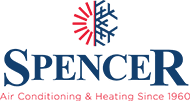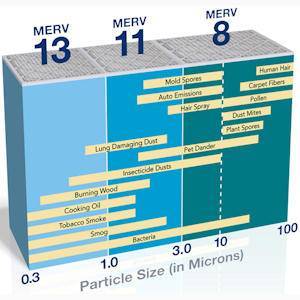MERV Ratings Chart 101: The Ultimate Air Filter Guide
What Is a MERV Rating?
MERV stands for Minimum Efficiency Reporting Value and represents the standard that rates the overall effectiveness of air filters. Developed by the American Society of Heating, Refrigerating, and Air-Conditioning Engineers (ASHRAE), this rating system provides a scale from 1 to 20 to help consumers understand how well an air filter can trap and remove particles from the air.
Here’s a breakdown of what MERV filter ratings signify:
MERV 1-4
The Basic Protectors. These filters are the front-line defense against larger particles like dust mites and textile fibers. Perfect for residential use, they primarily shield your HVAC system while offering fundamental air filtration.
MERV 5-8
The Enhanced Guards. Step up your air quality game with these filters. Excelling in trapping smaller irritants like mold spores and pet dander, they’re the go-to for both homes and businesses seeking a balance of efficiency and affordability.
MERV 9-12
The Allergy Alleviators. These ratings indicate filters that can trap even smaller air particles like legionella, humidifier dust, auto emissions, and lead dust. Comparable in efficiency to high-efficiency particulate air (HEPA) filters, they are ideal for homes with individuals suffering from allergies or respiratory issues, as well as for better commercial environments.
MERV 13-16
The High-Efficiency Heroes. When it comes to combating bacteria, tobacco smoke, and even sneeze droplets, these filters are unparalleled. They’re not just filters; they’re guardians of health, suitable for top-tier residential spaces and critical healthcare facilities.
MERV 17-20
The Ultimate Purifiers. At the highest end of the MERV scale, these AC and furnace filters are used in pharmaceutical manufacturing, cleanrooms, and where ultra-fine particulate filtration is necessary. They can trap airborne pathogens, viruses, carbon dust, sea salt, and smoke from burning materials.
The MERV rating helps consumers and professionals choose the right filter based on their specific needs, balancing factors like air quality requirements, cost, and energy efficiency. Higher MERV ratings generally correspond to a greater ability to filter finer airborne particles, but they can also reduce airflow and increase energy costs. Therefore, it’s important to select a filter that provides adequate filtration without overly burdening your HVAC system.
Which MERV Rating Filter Should You Use in Your Home?
Choosing the right MERV rating for your home’s air filter can significantly impact both the indoor air quality and the efficiency of your HVAC system. Here’s a tailored guide to help you select the right air filter for your space according to the MERV rating scale:
1. For Basic Residential Use (MERV 1-4):
If your primary goal is to protect your HVAC system from large particles like dust and lint, and air quality is not a major concern, then an AC or furnace filter in this range is adequate. These are cost-effective and won’t overly restrict airflow in your system.
2. For Homes with Pets or Mild Allergies (MERV 5-8):
This range is a step up, offering better filtration for common allergens like pet dander, pollen, and dust mites. It’s a suitable choice for average households looking for a balance between air quality and energy efficiency.
3. For Allergy Sufferers and Higher Pollution Areas (MERV 9-12):
These filters are more efficient at capturing smaller particles, including fine dust and some bacteria. If someone in your home has moderate allergies or if you live in an area with higher pollution, filters in this range can provide a noticeable improvement in air quality.
4. For Superior Air Quality Needs (MERV 13-16):
These high-efficiency filters are capable of trapping very fine particles, including smoke, viruses, and bacteria. They’re ideal for households with individuals who have severe allergies, asthma, or other respiratory conditions. However, they can reduce airflow, so check if your HVAC system can handle these filters without compromising its performance.
5. For Specialized Environments (MERV 17-20):
Generally not recommended for standard residential use, these filters are used in places requiring ultra-clean air, like hospitals and scientific labs. They can significantly restrict airflow, potentially damaging residential HVAC systems.
Embrace Healthier Air Today 🌬️🍃🏡
Ready to enhance your home’s air quality? Spencer Air Conditioning and Heating is here to guide you. Explore our range of high-quality filters, each tailored to meet your unique needs. From combating allergies to ensuring optimal HVAC efficiency, we have you covered. Contact us today and experience the transformation to fresher, cleaner air in your home.
Proudly providing Air Conditioning & Heating service and replacements to Irving, Dallas, Fort Worth, Coppell, Flower Mound, Plano, Frisco, Bedford, Euless, Colleyville, Hurst, Arlington, Addison, Carrollton, Farmers Branch, Grand Prairie, Grapevine,Highland Park, University Park, Garland, Keller, Lewisville, Richardson, North Richland Hills, Southlake, The Colony, and other surrounding cities in Dallas County, Tarrant County, Collin County, and Denton County
Quick Links
Location
Spencer Air Conditioning & Heating
License: TACLB27949E
Phone: 972-446-2665 / 972-316-9405
Fax: 972.253.5326
Email Us





